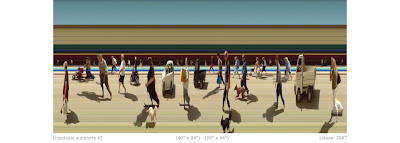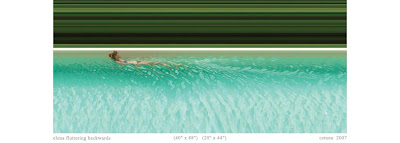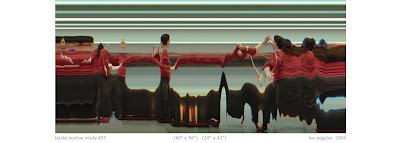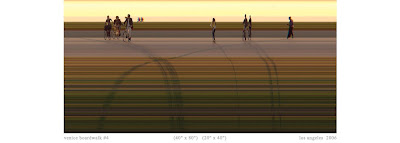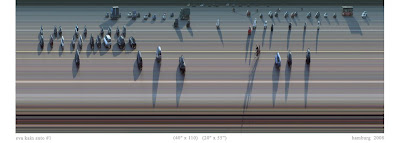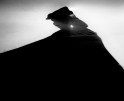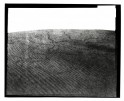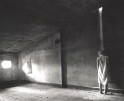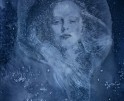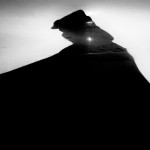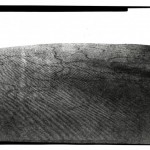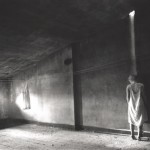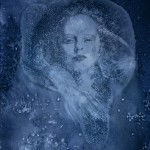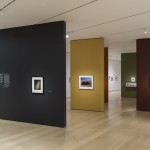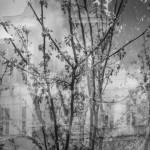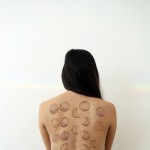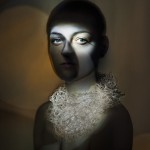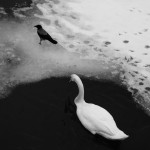Jay Mark Johnson
Jay Mark Johnson’s opening at the Ace Gallery in Beverly Hills was on the check list of many Angelenos this summer. The exhibition, Spacetime, runs through August 29th.
Mr. Johnson brings an impressive list of life long visual explorations to his work–starting with a degree from Tulane in Architecture and Urban Studies where he explored “questions of representation and time” in his associations with well know architects like Rem Koolhaas and Peter Eisenman. Later he moved into perfomance art in NYC collaborating with, amongst others, Nan Goldin and Kiki Smith.
By the late 1980’s, Johnson was creating alternative television collectives in the U.S., Mexico, and El Salvador, and began to master digital video technology. In the early ’90s, Johnson moved to Los Angeles, supervising computer generated imagery for films such as the Matrix, Titanic, Molin Rouge, and Outbreak, and music videos for the Red Hot Chili Peppers and Michael Jackson.
At this point he “he devoted two years to graduate study in Linguistic Anthropology and Biological Anthropology at UCLA. Additional years of study focused on reading in the cognitive sciences.”
Since 2005, Jay has been working on a project that combines his amazing resume of interests. “Johnson produces photographic images that challenge the norms of perception. Employing a process that is distinct from conventional photography, he creates works that merge the recording of space and time into a single, linear “spacetime” continuum. The resulting photographs are akin to both seismographs and electrocardiograms in that, as timelines, they begin on the left and end on the right. The horizontal length of the image conveys an uninterrupted and fluid measurement of a brief span of time, varying in duration from 10 seconds up to 45 minutes.”
Johnson writes, “Human knowledge expands and matures through advances in the arts and the sciences in one of at least two general manners. Either they push the outer envelope into newer territory or they construct new symbolic scaffoldings which span across and link together previously disparate disciplines. In the empirical sciences, discernible advances are made when an established instrument or practice develops greater refinement or greater range. Art contributes by challenging perceptions, shifting perspectives or otherwise strengthening or broadening established understandings.”
“The artist views the works in these series as spacetime photography. He equates his visual experimentation to stepping “through the looking glass” with Alice. In this parallel world of shifted perceptions, the ground rules are changed. Horizontal space is obliterated, shadows are crisscrossed, directional movement is confounded. Individuals appear isolated from the spaces they inhabit, and the relative speed of an object causes its expansion or contraction. Though the images are true photographs, they challenge the viewer’s effort to decode them.”
Posts on Lenscratch may not be reproduced without the permission of the Lenscratch staff and the photographer.
Recommended
-
Jonathan Silbert: InsightsFebruary 19th, 2026
-
Olga Fried: Intangible EncountersFebruary 18th, 2026
-
Anne McDonald: Self-PortraitsFebruary 17th, 2026
-
Review Santa Fe: Elizabeth Z. Pineda: Sin Nombre en Esta Tierra SagradaFebruary 6th, 2026
-
Carolina Baldomá: An Elemental PracticeJanuary 5th, 2026


